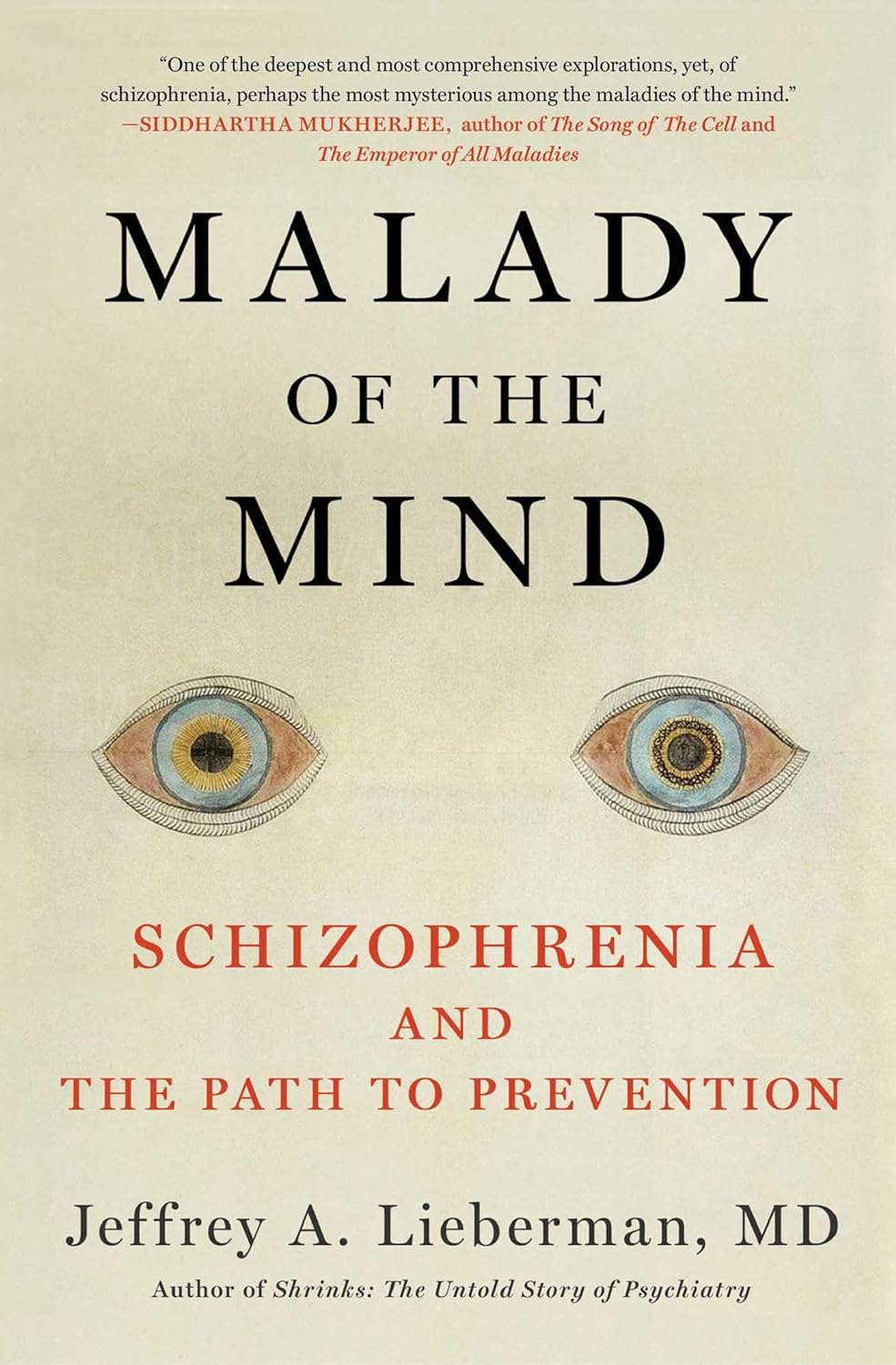
ISBN: 9781982136420
Dimensiuni: l: 15.2cm | H: 23cm | 3.5cm | 612g

“The most important book about schizophrenia in decades, and perhaps ever…a total game-changer.” —Sylvia Nasar, author of A Beautiful Mind
A comprehensive, deeply researched, and highly readable portrait of schizophrenia—its history, its various manifestations, and how today’s treatments have promising and often lifesaving potential.
This “incredibly captivating” (Siddhartha Mukherjee, author of The Emperor of All Maladies) portrait of schizophrenia, the most malignant and mysterious mental illness, by renowned psychiatrist Jeffrey Lieberman, interweaves cultural and scientific history with dramatic patient profiles and clinical experiences to impart a revolutionary message of hope. For the first time in history, we can effectively treat schizophrenia, limiting its disabling effects—and we’re on the verge of being able to prevent the disease’s onset entirely.
Drawing on his four-decade career, Dr. Jeffrey Lieberman expertly illuminates the past, present, and future of this historically dreaded and devastating illness. Interweaving history, science, and policy with personal anecdotes and clinical cases, Malady of the Mind is a rich, illuminating experience written in accessible, fluid prose. From Dr. Lieberman’s vantage point at the pinnacle of academic psychiatry, informed by extensive research experience and clinical care of thousands of patients, he explains how the complexity of the brain, the checkered history of psychiatric medicine, and centuries of stigma combined with misguided legislation and health care policies have impeded scientific advances and clinical progress. Despite this, there is reason for optimism: by offering evidence-based treatments that combine medication with psychosocial services and principles learned from the recovery movement, doctors can now effectively treat schizophrenia by diagnosing patients at a very early stage, achieving a mutually respectful therapeutic alliance, and preventing relapse, thus limiting the progression of the illness. Even more promising, decades of work on diagnosis, detection, and early intervention have pushed scientific progress to the cusp of prevention—meaning that in the near future, doctors may be able to prevent the onset of this disorder.
A must-read for those interested in medical history, psychology, and those whose lives have been affected by schizophrenia, this “penetrating, important” (Andrew Solomon, author of Noonday Demon) work offers a comprehensive scientific portrait, crucial insights, sound advice for families and friends, and most importantly, hope for those sufferers now and future generations.